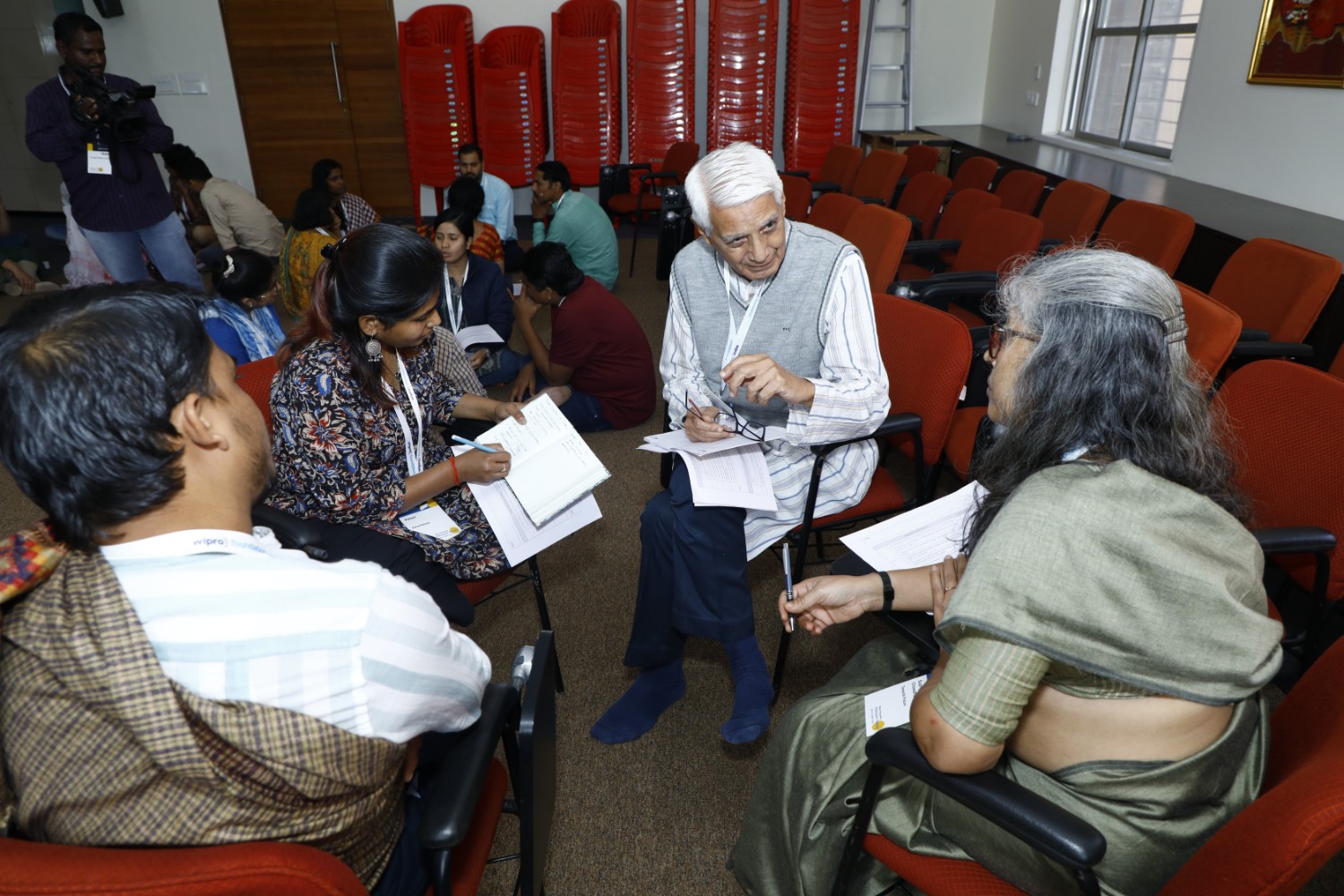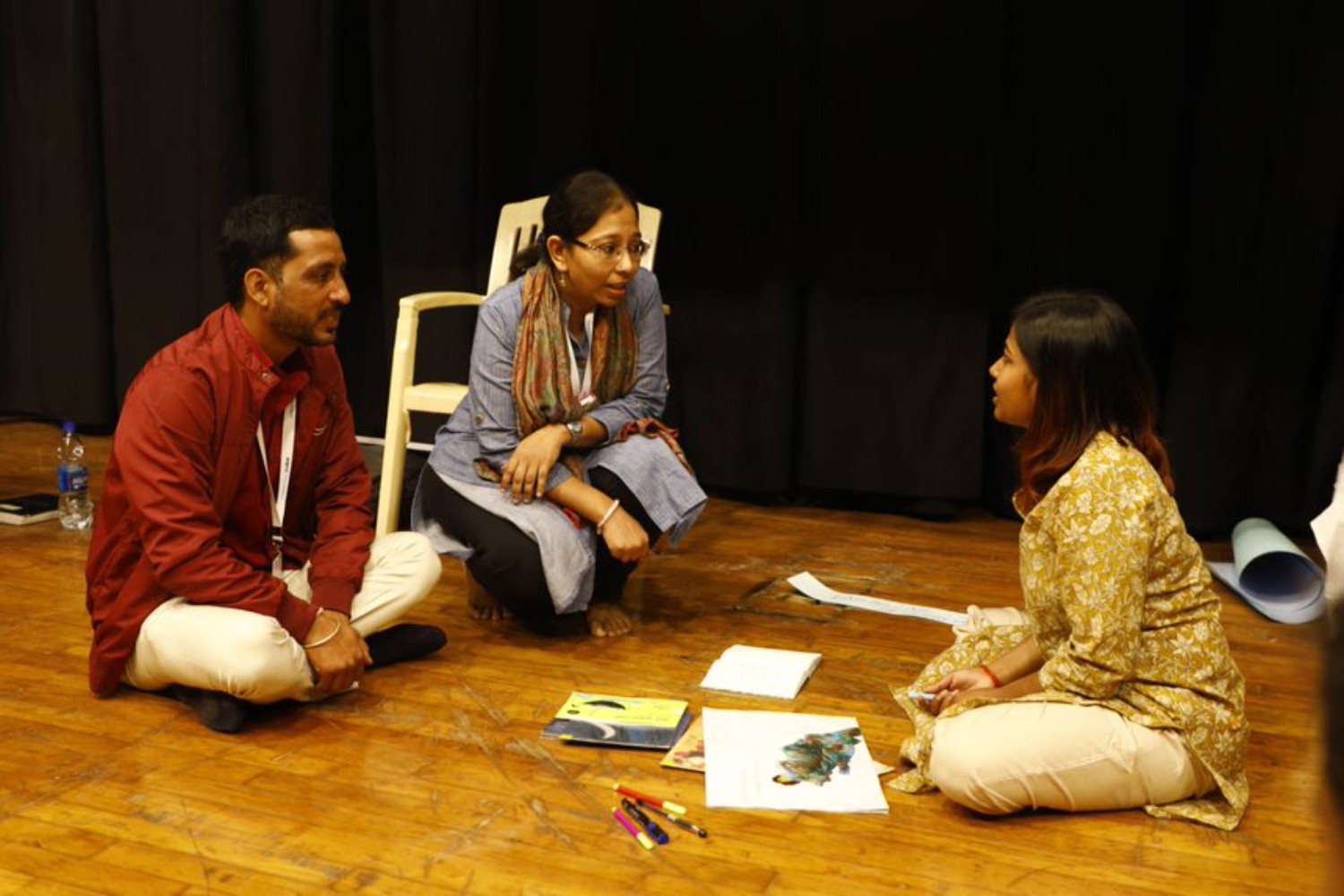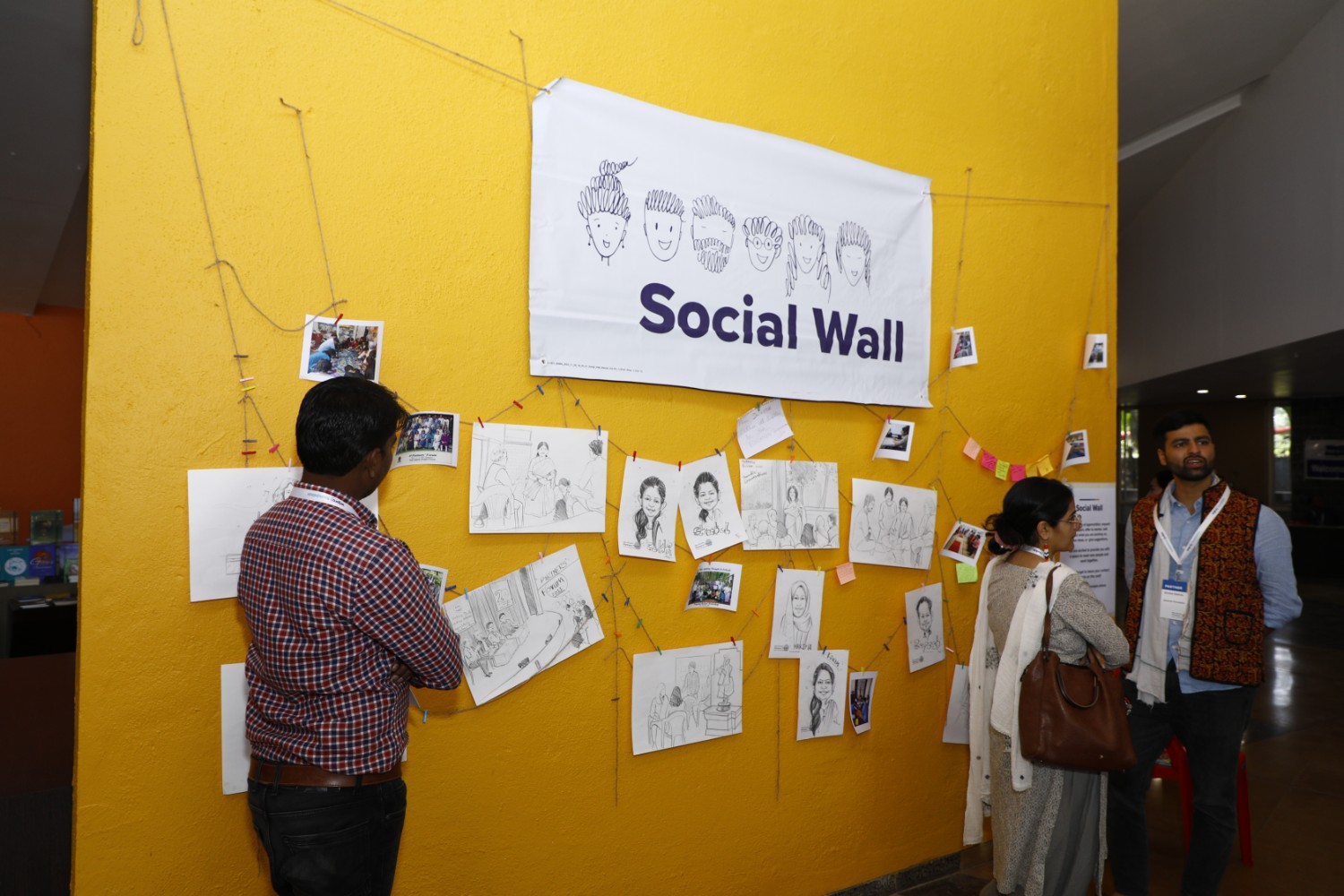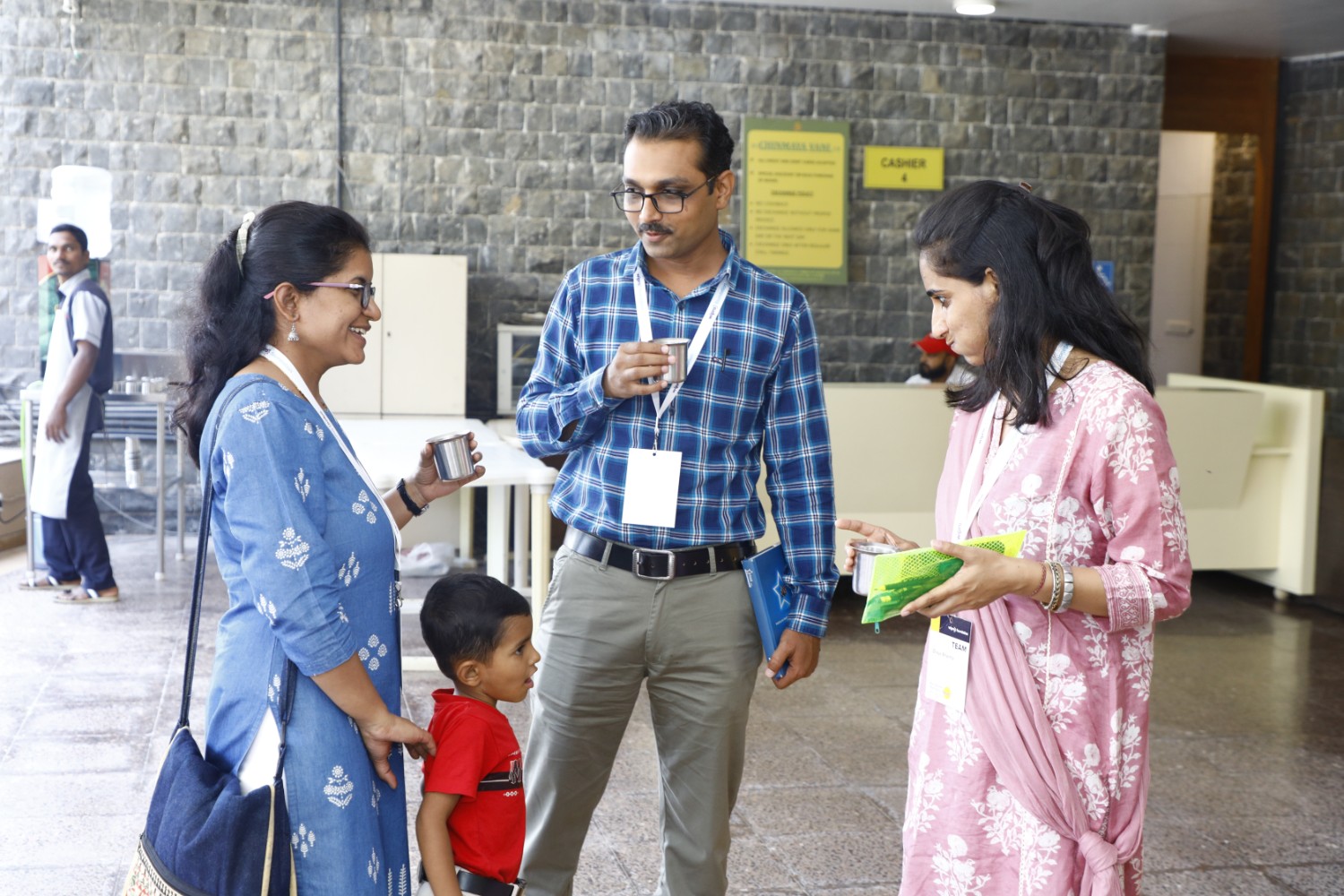Emerging priorities in school education in India over the next 5-10 years
The ‘Discussion’ section captures conversations and deliberations on topics like "Emerging Priorities in School Education in India over the Next 5-10 Years," which will be of interest to all of us who work in the domains of education and development.

A conversation on the topic ‘Emerging Priorities in Education in India over the Next 5-10 Years’ was facilitated on the third day of the 20th edition of Partners’ Forum on 7 December 2022. Though there are many critical areas in education that we need to engage with, for the purpose of the session, keeping in mind the work and needs of the organizations participating in the Forum, the following three domains were prioratized: Foundational Literacy and Numeracy; Teacher Education; and Early Childhood Education.
This discussion was moderated by Rahul Mukhopadhyay. Gurleen Malhotra, Kiran Bhatty and Rishikesh B. S. shared their insights and concerns on the topic. The moderator and the speakers come from a variety of backgrounds. Their engagements range from policy deliberations at the highest level, and actively shaping ideas in the space through research and teaching, to hands-on practice on the ground.
In this session, we discussed emerging possibilities in the three sub-domains mentioned earlier, the position of NEP 2020 on these areas, how NEP 2020 is being implemented, what role NGOs and CSOs can play, and some interesting efforts already being made in this direction. Sharing by Rishikesh B. S.: We need to grapple with the reality of NEP 2020. The relevant institutions in the various governments in the states and at the centre have already started taking steps for translating the policy on the ground.
There are two time horizons with which we need to look at this work. The first relevant time horizon is of five years of which two are already over by now, two years that were substantively lost to the COVID-19 pandemic. The FLN related work that was envisaged in this time period now needs to be fast-tracked by all stakeholders.
Now various state governments will be launching NIPUN. This program was launched even before NEP 2020 was adopted. There are some challenges related to compatibility between the two. These need to be addressed. There has to be adequate planning for the next five years. Some areas about which we have not planned properly, such as that of school complexes, need to be addressed.
States do not seem to be doing anything about some specific issues, such as that of special education zones. There are some things about which there is still very little clarity. This includes issues like ‘No Detention Policy’.
The National Curriculum Framework (NCF) is in the development phase now. It is going to be voluminous. The foundation stage document only is around 360 pages long. One thing that needs to be flagged here is the multi-disciplinarity of education. How are we going to bring this about? Will this involve thematic integration across disciplines or will it have new curricula? A good thing about NEP 2020 is that all subjects are now seen as core. It has a non-hierarchical position on subjects. Hitherto neglected subjects like physical education and the arts have been given adequate importance. The implications of this for our own practice must be teased out.
Sharing by Gurleen Malhotra on Foundation Numeracy (FN): Children must fall in love with whatever they are doing. The general assumption in FN is that children should develop the ability to read and write numbers. Whereas, what we understand from our work in this space is that children need to develop a basic number sense. Through FN related interventions, children also must develop a sense of relatedness between the sense of quantity and the idea of numbers.
Counting is basic to develop number sense. However, the question is how it can be developed in classrooms. We need to bring context and stories into our classrooms. Children need to develop a sense of ‘how many,’ and this needs to be facilitated by helping them engage with real, meaningful problems.
We also need to understand and innovate with teacher training and understand how this gets translated in classrooms. We need to engage continuously with teachers. This is necessary for teachers to develop a conceptual map of their interventions in classrooms.
Sharing by Kiran Bhatty: We need to step back from exclusively focusing on the NEP/ NCF and the overtly institutional/governance aspects related to school education. Perhaps we need to refocus broadly on what is happening to our public education system itself.
One of the key aspects of building state capacity in education is to have robust data systems based on which we can make considered choices. There is a need to make reliable data available in a timely manner.
Second, there is a need for regular, concurrent handholding of teachers. In this context, persistent and increasing contractualization of teachers is a serious concern.
We also need social audits. The central government has announced social audits of missions and campaigns related to education. This could potentially help sustain the process of accountability. We need to go back to first principles regarding this.
The focus on learning outcomes related to FLN has been around for quite some time now. However, we need to keep our eyes on the larger picture. By focusing narrowly on outcomes, we might be missing out on addressing the larger question of fostering the joy of learning.
Children come to school to learn how to deal with the larger world. We need to reclaim the school as a space for social learning. In this context, one also needs to highlight the fact that social studies are becoming less and less important in schools. A related aspect is the need to engage with diversity of all kinds in our schools. NEP talks about both global/ local contexts and imperatives. We need to think through the related cocnerns to figure out a balance.
Post-Panel Discussions: One strand of discussion following the sharing by the panel related to the desirability and possibility of extending the FLN mandate of NEP 2020 to critical reading pedagogies. Concerns were also shared with respect to migrant children and related questions surrounding multilingualism and equity. Some participants also raised questions about the need to discuss and push for reforms in the private sector.
Some of the points of discussion related to the ways in which convergence can be attempted between ICDS and FLN interventions in schools, including the role of AWWs in teaching learning processes. Some participants raised the point that we need to focus on community run schools as well; the public school system need not grab all our attention. It emerged in the discussions that a complete overhauling of the teacher education system is required. Although NEP 2020 envisages a clear roadmap for this, matters are yet to start moving in earnest. The lack of clear thinking regarding in-service teacher training was also foregrounded. The focus on skills and testing also emerged as an area of concern; so did a lack of proper regulation of schools in the private sector. Common sense notions of the public school system as needing reform and the private sector as the source of solutions were challenged as well.
Concerns were expressed about the private sector having an increasingly important role in setting policy agendas. Here the role of CSOs was seen as critical in keeping checks and balances. School complexes were identified as one area in which CSOs can have a critical role. The idea of the school complex envisages brining hitherto unavailable resources as close to all children as possible. Capacity building of HMs was seen as a critical area of intervention in this regard. With respect to role of CSOs, concerns were expressed about new kinds of private players in the sector crowding out CSOs.




No approved comments yet. Be the first to comment!